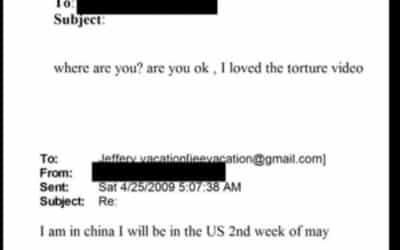This article originally appeared at Anti-Media.
Speaking to ABC News on Sunday, one of South Korean president Moon Jae-in’s top aides criticized Donald Trump’s recent bellicose rhetoric against North Korea, calling the U.S. leader’s comments “very worrisome” because they’ve only made the situation worse.
“This is very unusual,” ambassador-at-large for international security Moon Chung-in said. “We do not expect that the president of the United States would make that kind of statement. It is very worrisome for the president of the United States to fuel the crisis.”
To be sure, this “crisis” aide was speaking of, if fanned into the flames of military engagement, would have immediate ramifications for North Korea’s neighbor to the south. Some in the media, however, have begun pointing out that despite all the sabre-rattling, most South Koreans simply aren’t all that concerned.
From Buzzfeed News on Friday:
“Between North Korean threats to launch missiles toward Guam and President Donald Trump boasting the US is ‘locked and loaded’ for a conflict, many Americans are on edge.
“But in the South Korean capital of Seoul, which hears regular North Korean promises to turn it into a ‘sea of fire’ and has lived under the threat of war with Pyongyang for decades, locals — especially younger Koreans — told BuzzFeed News this just isn’t that big of a deal to them.”
Reporter Jihye Lee, based in Seoul, spoke to young people around the country’s capital, and the responses to questions about North Korea may come as a surprise to Americans who get their news solely from the mainstream media.
“I don’t really think about it,” said one 31-year-old while speaking about the threat to the north, adding that South Koreans know the Hermit Kingdom is “just making a whole bunch of noise as they always do” and “begging for some more attention.”
A 30-year-old said the “news about both Koreas on CNN or BBC” doesn’t “feel like the world I live in.” One 26-year-old South Korean agreed, telling Buzzfeed News she has a “knee-jerk eyeroll reaction” when she goes overseas because “the first thing people think is that I live in a war zone” and this “couldn’t be further from the truth.”
“I don’t feel threatened at all, and I don’t see why I should,” another 25-year-old said of North Korea, adding that “they need this drama for people to even remember that they exist on Earth.”
“Old people care about it, probably, not my friends,” the young man also stated.
This indifference to Kim Jong-un’s blustering — particularly among South Korea’s youth — was highlighted by Haeryun Kang, managing editor of English-language magazine and website Korea Expose, for The Guardian on August 9:
“The reality of South Korean ‘indifference’ is complex and even contradictory. Widespread indifference to North Korea is definitely real — especially among the younger generation, whose education was not as strictly dictated by cold war ideologies — but it coexists with a deeply personal attachment that many South Koreans — even the young — still harbour to North Korea.
“South Korean history and identity are, paradoxically, indivisible from the northern neighbour it was decisively separated from 67 years ago when the Korean war began. Spy missions, terrorist attacks, verbal and physical threats, one-dimensional portrayals of ‘The Other’ as ‘The Beast’; all this has existed, on both sides of the border, throughout modern Korean history.
“But this pervasive narrative of North Korea as a dangerous, existential threat coexisted with an equally pervasive narrative that it was ‘our brother’. The majority of South Koreans still want unification.”
In an interview with Vox published Friday, Kang again echoed this sentiment while describing the multifaceted nature of the relationship between citizens of the North and South.
“But in South Korea, it’s deeply personal, and it’s deeply complex,” Kang told Vox’s Lindsay Maizland. “You don’t encounter North Korea just as a foreign country. It’s supposed to be your brother, your family, that one day you’re supposed to reunite with.”
Of the current spike in tensions between the U.S. and the Hermit Kingdom, Kang painted a picture similar to that of the young people who spoke to Buzzfeed News’ Lihye Lee:
“When you go out to the larger public, you see that life goes on as usual and a lot of people are pretty unfazed by what is going on. There’s a certain level of fear about what’s going on, if this or that were to happen, but on the whole, there’s not a hugely palpable sense of fear. Certainly not as much as what I encounter when I go abroad.”
Indeed, Kang told Vox’s Maizland, the biggest concern over nuclear weapons is the fact that they exist in the first place. Asked if, at the end of the day, all the tough talk over North Korea’s nuclear program is disconcerting, Kang replied:
“I think if I really think about it, I’m a little concerned. But it’s also in the sense that I’m concerned about how easily accessible nuclear weapons are increasingly in this world. And it’s not just North Korea. It’s the United States, it’s Russia, it’s all these different countries.
“There’s another layer of hypocrisy in the way we report about North Korea. Like, the United States owns nuclear weapons, but why is North Korea in the axis of evil that doesn’t get to because it’s supposed to be the less rational one? I’m just generally afraid of nuclear weapons in general. I’m just as afraid of Trump owning nuclear weapons as Kim Jong Un owning one.”






























